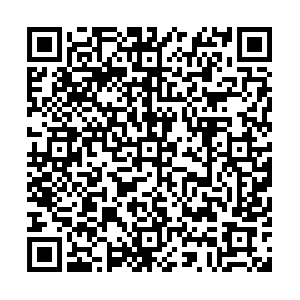Prodia StemCell Indonesia (ProSTEM) is a company specializing in the processing and storage of stem cells, which has actively contributed to advancing regenerative treatment efforts in Indonesia. ProSTEM is experienced in processing cells for degenerative disease therapy, following the standards outlined in the Ministry of Health Regulation of the Republic of Indonesia No. 48 and 50 of 2012. This ensures that the quality of processed and stored stem cells meets the required standards.
To ensure the quality of stem cells, progenitor cells, and their derivatives, ProSTEM also provides quality assessment tests for cells and their derivative products. These tests are conducted by competent laboratory personnel using validated methods to ensure the best results in guaranteeing the quality of cells, stem cells, and their derivatives for regenerative therapy.
Assessment of identity, potency, purity, sterility, and stability are important parameters that must be met as criteria to ensure the quality of cell-based products and their derivatives. Therefore, ProSTEM provides quality assessment testing services for cells and their derivatives as follows:
1. Identification
One way to test cell identity is by observing specific surface markers on cells. Some of these tests can be performed at ProSTEM, including:
- hMSC (CD73, CD90, CD105, Lin-)
- EPC (CD34, CD45, CD133)
- HSC (CD34, CD45)
This examination is performed using a device. flow cytometer device to detect antibody dyes that have adhered to the cell surface.
2. Potential
Potency testing is used to ensure that a product has intrinsic biological function or is capable of producing therapeutic effects in accordance with its intended clinical indications.
a) Differentiation
- Adipocytes
- Chondrocytes
- Osteocytes
One example of a potential test that can be conducted at ProSTEM is testing the differentiation of MSC cells into osteocytes, chondrocytes, and adipocytes. Stem cells are cultured using specific differentiation media for 14 days to produce the desired cells. Next, the differentiated cells will undergo specific staining and be analyzed using a microscope.
b) Viability
- Trypan Blue Method
- 7-AAD Flow Cytometry Method
In addition, the number of viable cells can indicate the potential of cells that are still alive and can be used for therapy, which is measured using automated cell counter.
3. Purity and safety
Purity testing is used to ensure that the product does not contain unwanted components, such as contaminated cell types or residual process reagents.
- Endotoxin
Endotoxin testing is used to ensure that products are pure and free from endotoxin contamination originating from Gram-negative bacteria. This testing is performed using the following methods gel-clotting, where samples containing endotoxins will form a gel when mixed in a test tube.
- Mycoplasma
One of the standard bacteria tested in cell-based product quality testing is mikoplasma, which can cause disease when injected into the human body. At ProSTEM, mycoplasma testing is performed by utilizing the enzymatic reaction of mycoplasma bacteria that converts ADP to ATP, which is then converted into a ratio and adjusted to predetermined acceptance criteria.
- Sterility and identification of microorganisms
Sterility testing is necessary to ensure that the product does not contain contaminating microorganisms. This test is performed by inoculating samples onto the surface of a medium, such as Tryptic Soy Agar (TSA), which is then incubated for 14 days at the appropriate temperature. If growth is detected on the medium, microbial identification will be carried out down to the species level.
The advantages related to the ProSTEM product include:
- Facilities that have obtained certification GMP and licensed as a stem cell processing laboratory in accordance with Minister of Health Regulation No. 50 of 2012
- Nationally validated examination methods that comply with international standards
- Qualified professionals
- Has established cooperation with national and international clinical laboratories.
- Registered examination equipment for use In Vitro Diagnostic (IVD), such as CD34 examination.
- Processing and testing of various sample sources, such as bone marrow, peripheral blood, umbilical cord blood, umbilical cord, adipose tissue, and dental pulp.
- Proper and prompt handling of samples in accordance with the principles Good Laboratory Practices (GLP).
References
- USP Chapter <1046> Cellular and Tissue-Based Products.
- Carmen J., Burger, S.R., McCaman, M., and Rowley, J.A. 2012. Developing Assays to Address Identity, Potensi, Purity, and Safety: Cell Characterization in Cell Therapy Process Development. Regenerative Medicine. 7(1):85-100. DOI: 10.2217/rme.11.105.

